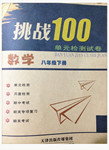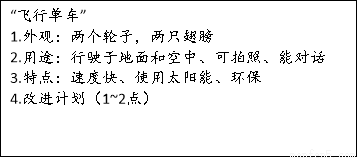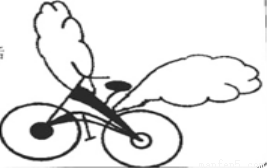
Libraries |
Public libraries Most towns in Britain have a public library. A library usually has a large selection of books and other resources, which library members can use and borrow for free. |
Britain¡¯s First Public Library The first public library in Britain opened in Manchester in1852. It¡¯s first librarian was a man called Edward Edwards, Edwards attended the library¡¯s opening ceremony and two famous writers called Charles Dickens and William Thackeray were there too. |
How to Join a Library To join a library, go to your local library and fill in a form. you¡¯ll receive a library card which is needed when using library services |
Mobile Libraries Not everyone can get a library. Some people live far away from towns and cities. Other people find it difficult to go out because they have an illness or a disability .Thanks to mobile libraries, these people can still borrow books. Unlike most libraries, which store books in buildings, mobile libraries usually keep their books in a mini ¨Cbus. The back of the mini- bus has shelves for the books, and it is big enough for borrowers to step inside and look around. A driver takes the mini-bus to a certain place at a certain time, so people know when to expect it. They can then return their books and borrow some more . |
All Aboard the Library A school in London didn¡¯t have space for a library inside the building. However, everybody agreed that it was still important to have a school library. So the head of the school, Graham Blake decided to park an old bus on the school car park and changed it into a library. Pupils helped to paint the bus, and after eight months, the new library was ready . |
1.Who was the first librarian of the first public library in Britain?
A. Charles Dickens. B. William Thackeray C. Edward Edwards. D. Graham Blake
2.Who can use public library services?
A. CD or DVD sellers. B. Anyone living in Britain.
C. A person with a library card. D. Newspaper or book writers.
3.What is special about the mobile library?
A. Keeping books in buildings. B. Returning books to readers.
C. Offering special services to pupils. D. Going to a certain place at a certain time.
4.Why did the school in London build its library on an old bus?
A. Because parents offered the school an old bus.
B. Because pupils thought it was fun to read on a bus.
C. Because the school didn¡¯t have enough money to buy books.
D. Because the school didn¡¯t have enough space inside the building.
5.What can we learn from the passage?
A. Schools in London like mobile libraries. B. Public library services in the UK are free.
C. People living far away can¡¯t use libraries. D. Many famous British writers lived in Manchester.
 ÌôÕ½100µ¥Ôª¼ì²âÊÔ¾íϵÁдð°¸
ÌôÕ½100µ¥Ôª¼ì²âÊÔ¾íϵÁдð°¸
| Ä꼶 | ¸ßÖÐ¿Î³Ì | Ä꼶 | ³õÖÐ¿Î³Ì |
| ¸ßÒ» | ¸ßÒ»Ãâ·Ñ¿Î³ÌÍƼö£¡ | ³õÒ» | ³õÒ»Ãâ·Ñ¿Î³ÌÍƼö£¡ |
| ¸ß¶þ | ¸ß¶þÃâ·Ñ¿Î³ÌÍƼö£¡ | ³õ¶þ | ³õ¶þÃâ·Ñ¿Î³ÌÍƼö£¡ |
| ¸ßÈý | ¸ßÈýÃâ·Ñ¿Î³ÌÍƼö£¡ | ³õÈý | ³õÈýÃâ·Ñ¿Î³ÌÍƼö£¡ |
¿ÆÄ¿£º³õÖÐÓ¢Óï À´Ô´£º½ËÕÊ¡2017½ì¾ÅÄ꼶Öп¼×îºóһģӢÓïÊÔ¾í ÌâÐÍ£ºÍêÐÎÌî¿Õ
Before seeing light we have slowly ______ for two hours on that cold December evening. ¡°This must be the house.¡± I told our group. We parked our car at an old house. We gathered up our ______ books. We knocked on the door. We heard a ______ voice from inside say, ¡°Come in. The door is open.¡± We ______ the door.

There in a rocking chair sat an elderly woman with a big smile on her face. ¡°I am ______ you.¡± Ruth said weakly. We ______ Ruth the basket of delicious food. I asked Ruth what carols(Ê¥¸è) she would like to hear. Then Ruth sang some carols with us happily.
As we hugged Ruth good-bye she said to me ______, ¡°The day you called I was still in bed. I had just finished praying. I asked God if it would be ______ to have some Christmas Caroles come to my home and sing this year. Thank you for being the answer to my ______ prayer."
Wow, what an great ______ to have the opportunity(Ȝȇ) to be the answer to someone's Christmas prayer.
1.A. waited B. driven C. walked D. climbed
2.A. English B. science C. song D. story
3.A. happy B. sad C. weak D. exciting
4.A. broke B. mended C. painted D. opened
5.A. expecting B. writing C. hating D. advising
6.A. cooked B. sold C. made D. handed
7.A. sadly B. angrily C. thankfully D. angry
8.A. OK B. necessary C. possible D. true
9.A. birthday B. Christmas C. Thanksgiving D. Halloween
10.A. experience B. news C. dream D. story
²é¿´´ð°¸ºÍ½âÎö>>
¿ÆÄ¿£º³õÖÐÓ¢Óï À´Ô´£º2017Äê³õÖбÏÒµÉýѧ¿¼ÊÔ£¨ÄÚÃɹųà·å¾í£©Ó¢Ó½âÎö°æ£© ÌâÐÍ£ºÔĶÁÀí½â
I am Alice. My sister and I spent our last summer holidays with our uncle who is a geologist (µØÖÊѧ¼Ò) and loves to collect stones.
One day he bought us two backpacks and asked us to go to the mountain with him. We walked the whole day. Every now and then he put stones in our backpacks. To our surprise, he also took some stones out from them. But we thought he had just found better stones.
When we returned to the house, we were very tired. The backpacks were so heavy that we felt relief £¨ÇáËÉ£©when we took them off. Yet our uncle¡¯s backpack was half empty.
"Why did you give us so many stones?¡± we asked.
"I didn¡¯t. You did." he said. ¡°You didn't know it, but I gave you a little attitude(̬¶È) test today. I listened to every word you said. Whenever you were complaining (±§Ô¹) , I added a stone to your backpacks. whenever you talked about something with positive (»ý¼«µÄ) thinking, I took out a stone. And now look at your backpacks."
Our backpacks were full of stones.
¡°Your negative( Ïû¼«µÄ) thoughts are just like stones. You carry them in your mind just like those stones in your backpacks. The mote negative thoughts you have, the heavier your mind will be.¡± said our uncle.
With great love, our uncle taught us one of the most important lessons it life¡ªthe power of the attitude.
1.Alice's uncle likes to _______.
A. collect coins B. collect stones C. collect stamps D. collect books
2.When Alice's uncle took out some stones from her backpack, she thought ________.
A. she said too many words B. her uncle had found better stones
C. her uncle wanted her to feel a sense of relief D. she talked about something with positive thinking
3.Alice's and her sister's backpacks were full of stones because they ______
A. complained (±§Ô¹) too much on the way B. were hard working
C. enjoyed collecting stones very much D. chose wrong backpacks to carry the stones
4. The underlined word "them" refers to "______" in the passage.
A. the stones B. the backpacks C. the positive thoughts t. tue negative thoughts
5.The writer wrote this passage to encourage us to _______
A. be pleased to take others' advice B. have a positive attitude towards life
C. make a plan before doing something D. help people in trouble
²é¿´´ð°¸ºÍ½âÎö>>
¿ÆÄ¿£º³õÖÐÓ¢Óï À´Ô´£º2017Äê³õÖбÏÒµÉýѧ¿¼ÊÔ£¨ºþ±±Ò˲ý¾í£©Ó¢Ó½âÎö°æ£© ÌâÐÍ£ºµ¥ÏîÌî¿Õ
¨CLife is becoming convenient with the Internet.
--That¡¯s true! Almost everything ______ be done online.
A. must B. would C. should D. can
²é¿´´ð°¸ºÍ½âÎö>>
¿ÆÄ¿£º³õÖÐÓ¢Óï À´Ô´£º2017Äê³õÖбÏÒµÉýѧ¿¼ÊÔ£¨¹ãÖÝ¾í£©Ó¢Ó½âÎö°æ£© ÌâÐÍ£ºÊéÃæ±í´ï
¼ÙÈçÄã·¢Ã÷µÄ¡°·ÉÐе¥³µ¡±ÔÚѧУ¿Æ¼¼½ÚÖлñ½±£¬±»ÍƼö²Î¼ÓÒ»¸ö¹ú¼ÊÇàÉÙÄê¿Æ¼¼Õ¹ÀÀ¡£ÇëÓÃÓ¢Óï½éÉÜÄãµÄ·¢Ã÷,ÄÚÈÝ°üÀ¨ÏÂͼÖÐ1-4Ïî.


×¢Ò⣺
£¨1£©²Î¿¼´Ê»ã£ºÂÖ×Ówheel Ì«ÑôÄÜsolar power £¨2£©´ÊÊý80×óÓÒ£¨ÎÄÕµĿªÍ·¼º¸ø³ö£¬²»¼ÆÈë´ÊÊý£©¡£
£¨3£©²»µÃ͸¶ѧУ¡¢ÐÕÃûµÈÈκθöÈËÐÅÏ¢£¬·ñÔò²»ÓèÆÀ·Ö¡£
My invention is a flying bike. ..._______________________________________________________________________________________________________________________________________________________________________________________________________________________________________________________________________________________________________________________________________________________________________________________________________________________________________________________________________________________________________________________________________________________________
²é¿´´ð°¸ºÍ½âÎö>>
¿ÆÄ¿£º³õÖÐÓ¢Óï À´Ô´£º2017Äê³õÖбÏÒµÉýѧ¿¼ÊÔ£¨°²»Õ¾í£©Ó¢Ó½âÎö°æ£© ÌâÐÍ£ºÊéÃæ±í´ï
¼ÙÈçÄãÊÇÀ£¬ÄãÃÇѧУ½«¾ÙÐС°ºëÑïÖлª´«Í³ÎÄ»¯¡ª¡ªÏ·Çú½øУ԰¡±Õ¹Ñݻ£¬Äã´òËãÑûÇëÄãµÄÃÀ¹úÅóÓÑMike²Î¼Ó¡£ÇëÄã¸ù¾ÝÒÔÏÂÌáʾÓÃÓ¢ÎĸøËûдһ·âµç×ÓÓʼþ¡£
1. ʱ¼ä£º7ÔÂ1ÈÕÏÂÎç2µã£»
2. µØµã£ºÑ§Ð£²Ù³¡£»
3. ÄÚÈÝ£ºÎÄ»¯Õ¹ÀÀ¡¢½ÚÄ¿±íÑݵȡ£
Ìáʾ´Ê£ºÏ·Çúopera n. ±íÑÝperformance n.
×¢Ò⣺1. ´ÊÊý80¡«100£»
2. ¿ÉÊʵ±Ôö¼Óϸ½Ú£¬ÒÔʹÐÐÎÄÁ¬¹á£»
3. ÐÅÖв»ÄܳöÏÖÓë±¾ÈËÏà¹ØµÄÐÅÏ¢£»
4. ¿ªÍ·ºÍ½áβÒÑΪÄãдºÃ£¬²»¼ÆÈë×Ü´ÊÊý¡£
Dear Mike,
I know you are interested in Chinese traditional culture.
__________________________________________
____________________________________________________________________________________________
____________________________________________________________________________________________
__________________________________________________________________________________________
Yours,
Li Hua
²é¿´´ð°¸ºÍ½âÎö>>
¿ÆÄ¿£º³õÖÐÓ¢Óï À´Ô´£º2017Äê³õÖбÏÒµÉýѧ¿¼ÊÔ£¨°²»Õ¾í£©Ó¢Ó½âÎö°æ£© ÌâÐÍ£ºÆßÑ¡Îå
¸ù¾Ý¶Ô»°ÄÚÈÝ£¬´Ó·½¿òÄÚµÄÑ¡ÏîÖÐÑ¡³öÄÜÌîÈë¿Õ°×´¦µÄ×î¼ÑÑ¡ÏÆäÖÐÓÐÁ½¸öΪ¶àÓàÑ¡Ïî¡£
A. Well done! B. For what? C. That¡¯s great. D. What kind of festival is it? E. I have never tasted them. F. How will you celebrate it? G. Would you like to go with me? |
Li Lei: hey, Bruce. I¡¯m going home this weekend.
Bruce: 1.
Li Lei: To celebrate the Mid-Autumn Festival.
Bruce: 2.
Li Lei: It is an important time for family.
Bruce: 3.
Li Lei: We¡¯ll have dinner together, watch the moon and eat mooncakes.
Bruce: Mooncakes? Are they delicious?
Li Lei: Yes. 4. We can celebrate it together.
Bruce: 5. Thank you!
Li Lei: You are welcome.
²é¿´´ð°¸ºÍ½âÎö>>
¿ÆÄ¿£º³õÖÐÓ¢Óï À´Ô´£º2017Äê³õÖбÏÒµÉýѧ¿¼ÊÔ£¨°²»Õ¾í£©Ó¢Ó½âÎö°æ£© ÌâÐÍ£ºµ¥ÏîÌî¿Õ
---I¡¯m afraid I can¡¯t do well in the game.
---_____. It¡¯s just for fun.
A. Sounds good B. What a pity C. Thank you D. Take it easy
²é¿´´ð°¸ºÍ½âÎö>>
¿ÆÄ¿£º³õÖÐÓ¢Óï À´Ô´£º2017Äê³õÖбÏÒµÉýѧ¿¼ÊÔ£¨É½¶«Ì©°²¾í£©Ó¢Ó½âÎö°æ£© ÌâÐÍ£ºÈÎÎñÐÍÔĶÁ
[1]Once, when there was a famine£¨¼¢»Ä£©, a rich baker sent for twenty of the poorest children in the town, and said to them, ¡°In this basket there is a loaf£¨Ãæ°ü£©for each of you. Take it, and come back to me every day at this hour for more.¡±
[2]The hungry children gathered eagerly about the basket, and fought over the bread because each wanted the largest loaf. At last they went away without even (77)______ the good baker.
[3]Gretchen, a poorly dressed little girl, did not fight or struggle with the other children, but stood quietly in the distance£¨Ô¶´¦£©, When the badly behaved children had left. Gretchen took the smallest loaf, which was all that was left in the basket. She kissed the baker¡¯s hand and went home.
[4](78)µÚ¶þÌ죬º¢×ÓÃDZíÏÖµÃÏñÒÔÇ°Ò»ÑùÔã¸â¡£Gretchen got a loaf almost half the size of the one she got the first day. When she came home, her mother cut the loaf open. Many new shining pieces of silver fell out of it.
[5]Her mother was very worried and said, ¡°Take the money back to the baker at once. The silver must have fallen into the dough by accident. By quick, Gretchen!¡±
[6]When the little girl gave the rich man her mother¡¯s message, he said, ¡°(79) It was no mistake, I had the silver pieces put into the smallest loaf to reward£¨½±ÉÍ£©you. Always be as content£¨Âú×㣩,peaceable, and thankful as you now are. Go home now, and tell your mother that the money is yours to keep.¡±
1.What did Gretchen do while the others fought over the bread?£¨no more than 6 words£©
2.Fill in the blank in the second paragraph with proper words£¨no more than 3 words£©.
3. Translate the Chinese sentence in the fourth paragraph into English.
4.Translate the underlined sentences in the sixth paragraph into Chinese.
5.What do you think of Gretchen and her mother?
²é¿´´ð°¸ºÍ½âÎö>>
°Ù¶ÈÖÂÐÅ - Á·Ï°²áÁбí - ÊÔÌâÁбí
ºþ±±Ê¡»¥ÁªÍøÎ¥·¨ºÍ²»Á¼ÐÅÏ¢¾Ù±¨Æ½Ì¨ | ÍøÉÏÓк¦ÐÅÏ¢¾Ù±¨×¨Çø | µçÐÅթƾٱ¨×¨Çø | ÉæÀúÊ·ÐéÎÞÖ÷ÒåÓк¦ÐÅÏ¢¾Ù±¨×¨Çø | ÉæÆóÇÖȨ¾Ù±¨×¨Çø
Î¥·¨ºÍ²»Á¼ÐÅÏ¢¾Ù±¨µç»°£º027-86699610 ¾Ù±¨ÓÊÏ䣺58377363@163.com